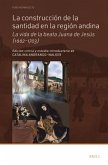Hermann Samuel Reimarus (1694-1768) was the most significant biblical critic in eighteenth-century Germany, as well as an eminent Enlightenment philosopher, a renowned classicist and expert on Judaism. How do the different strands of his scholarship fit together? Is there a direct way from critical philology to Radical Enlightenment? This volume portrays the 'whole' Reimarus and shows how exegetical expertise, philosophical reflection, and antiquarian interests came together in the formation of an extraordinarily deep ranging critique of the Bible, fragments of which were published by Lessing in the famous 'Fragmentenstreit' of 1774-78. The seven contributions all rely on new manuscript evidence and partly provide editions of hitherto unpublished texts.
Bitte wählen Sie Ihr Anliegen aus.
Rechnungen
Retourenschein anfordern
Bestellstatus
Storno


